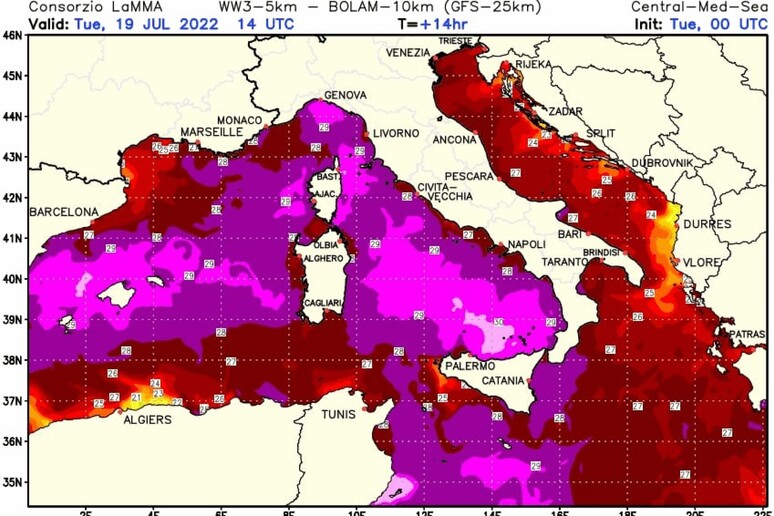A series of exceptional marine heat
waves killed off over 50 marine life forms in the Mediterranean
between 2015 and 2019, according to a new, partly Italian study
published Tuesday.
Most of the mass mortality events regarded corals, sponges, and
macro-algae, but also fish, said the international survey
compiled in part by the national research council (CNR)-IRBIM
marine research institute and published in Global Change
Biology.
The phenomena affected thousands of kilometres of coastline from
the Alboran Sea to the Med's eastern coasts between the surface
and 45 metres down, the report said.
"Sadly, the results show for the first time an acceleration in
the ecological impacts associated with climate change, an
unprecedented threat for the health and functioning of its
ecosystems," said CNR-IRBIM researcher Ernesto Azzurro.
"What is most concerning is the interaction between warming and
the presence of new pathogens in marine environments, with
effects that are still largely unknown".
ALL RIGHTS RESERVED © Copyright ANSA











